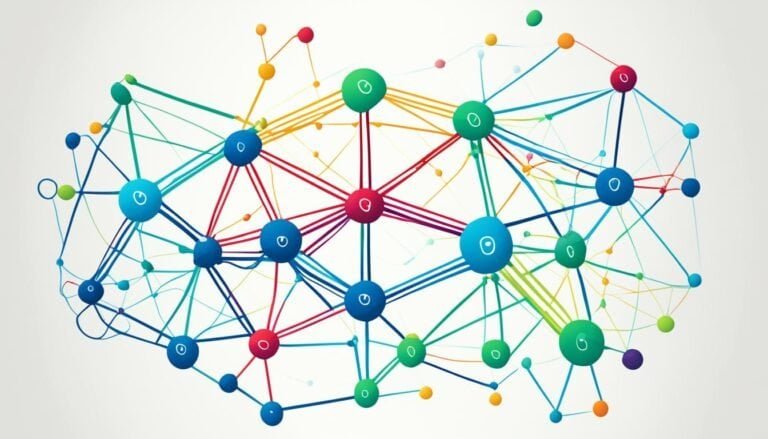What Is Analytical Thinking?
Imagine dissecting a complex problem and effortlessly identifying the underlying causes like a skilled detective piecing together clues. This is the essence of analytical thinking.
But what exactly does it entail, and how can honing this skill benefit you in various aspects of your personal and professional life?
Let's explore the intricacies of analytical thinking and uncover its significance beyond just problem-solving.
Key Takeaways
- Analytical thinking involves methodical problem-solving and systematic examination of complex issues.
- It emphasizes breaking down problems, identifying patterns, and developing effective strategies.
- Analytical thinking skills include logical reasoning, critical analysis, and cognitive development for informed decision-making.
- Application in business includes strategic planning, data interpretation, risk assessment, and informed decision-making.
Definition of Analytical Thinking
To understand analytical thinking, you must first grasp its fundamental concept as a methodical approach to problem-solving that emphasizes breaking down complex issues into manageable components for deeper comprehension. The analytical approach involves systematically examining problems by deconstructing them into smaller parts to better understand their underlying structure and relationships. This method allows you to identify patterns, connections, and potential solutions that may not be immediately apparent.
Problem analysis is at the core of the analytical approach. It requires you to carefully consider the different factors contributing to a problem, evaluate their significance, and determine how they interact with each other. By dissecting the problem into its essential elements, you can gain a clearer insight into its nature and develop effective strategies to address it.
Characteristics of Analytical Thinkers
As you explore the characteristics of analytical thinkers, you'll discover key traits that set them apart.
These individuals possess strong analytical thinking skills that enable them to break down complex problems into manageable components.
Key Traits of Analytical Thinkers
Analytical thinkers possess a keen ability to dissect complex problems and identify patterns with precision. Their key traits include logical reasoning and exceptional problem-solving skills. They excel at breaking down intricate issues into manageable parts, allowing them to analyze each component methodically.
Analytical thinkers are adept at recognizing cause-and-effect relationships, enabling them to predict outcomes accurately. They exhibit a strong attention to detail, ensuring that no vital information is overlooked during their analysis. These individuals are skilled at synthesizing information from various sources to form well-founded conclusions.
Their critical thinking abilities empower them to approach challenges with a systematic and structured mindset, leading to effective problem resolution.
Analytical Thinking Skills
Excelling in analytical thinking requires honing a set of distinctive cognitive skills and problem-solving abilities. When developing your analytical thinking skills, consider the following key aspects:
- Problem Solving Strategies: Mastering various problem-solving techniques enhances your ability to dissect complex issues systematically.
- Logical Reasoning: Engaging in logical thinking helps in structuring thoughts cohesively and drawing sound conclusions.
- Decision Making Process: Evaluating alternatives methodically during decision-making sharpens your analytical prowess.
- Critical Analysis: Practicing critical analysis enables you to scrutinize information effectively, leading to well-founded judgments.
Importance in Problem-Solving
Understanding the significance of analytical thinking in problem-solving is foundational for achieving effective solutions. By employing analytical thinking, you can break down complex issues into manageable parts, identify key factors, and evaluate various possibilities to reach informed conclusions. Analytical thinking enhances problem-solving by enabling you to apply structured approaches and critical reasoning. It is essential for developing effective problem-solving strategies and enhancing decision-making processes.
| Benefits of Analytical Thinking in Problem-Solving | Examples |
|---|---|
| Helps in identifying root causes of issues | Utilizing cause-and-effect analysis to pinpoint the source of a problem |
| Facilitates in generating innovative solutions | Implementing brainstorming sessions to explore diverse ideas |
| Enhances overall decision-making processes | Utilizing data-driven insights to make informed choices |
Incorporating analytical thinking in problem-solving equips you with the tools to tackle challenges methodically and efficiently. It fosters a structured approach that can lead to more effective and sustainable solutions. By honing your analytical skills, you can navigate complexities with clarity and precision, resulting in better outcomes.
Analytical Thinking in Business
To effectively apply problem-solving skills in a business context, harnessing analytical thinking is key for managing complex challenges and making informed decisions. When it comes to analytical thinking in business, here are four essential aspects to contemplate:
- Strategic Planning: Utilize analytical thinking to assess market trends, identify opportunities, and develop long-term strategies that align with your business goals.
- Competitive Analysis: Analyze competitors' strengths and weaknesses through a detailed examination of market dynamics, pricing strategies, and product offerings to gain a competitive edge.
- Data Interpretation: Use analytical thinking to interpret data accurately, extract valuable insights, and make data-driven decisions that enhance business performance.
- Risk Assessment: Apply analytical thinking to evaluate potential risks, anticipate challenges, and develop contingency plans to mitigate risks effectively.
Analytical Thinking Vs. Critical Thinking
When comparing analytical thinking to critical thinking, it's crucial to recognize that analytical thinking focuses on breaking down complex information into smaller parts to understand it better, while critical thinking involves evaluating information to form a judgment or decision.
While analytical thinking is more about comprehending and dissecting data, critical thinking emphasizes making judgments and drawing conclusions based on that information.
Understanding the distinctions between these two thinking styles can greatly enhance your problem-solving skills and decision-making processes.
Analytical Vs Critical Thinking
In distinguishing between analytical thinking and critical thinking, one must focus on their unique processes of evaluation and interpretation. Here are four key points to help differentiate between the two:
- Focus Areas: Analytical thinking emphasizes breaking down complex information into smaller parts for better understanding, while critical thinking focuses on evaluating that information to make informed judgments.
- Purpose: Analytical thinking aims to comprehend and explain, whereas critical thinking aims to assess and improve.
- Approach: Analytical thinking involves a systematic and methodical approach, while critical thinking requires questioning and challenging assumptions.
- Outcome: Analytical thinking leads to a thorough understanding, while critical thinking leads to actionable insights and decisions.
Key Differences
Understanding the key differences between analytical thinking and critical thinking is essential for developing effective problem-solving skills. Analytical thinking focuses on breaking down complex information into smaller parts to understand it better and draw conclusions.
On the other hand, critical thinking involves evaluating information objectively and forming a judgment based on evidence and logic. When it comes to cognitive flexibility, analytical thinking emphasizes using structured methodologies and data-driven approaches to solve problems, while critical thinking encourages questioning assumptions and exploring diverse perspectives.
Concerning creative problem solving, analytical thinking leans towards systematic and methodical problem-solving techniques, whereas critical thinking encourages thinking outside the box and exploring innovative solutions. Both thinking styles complement each other, with analytical thinking providing a structured approach and critical thinking fostering creativity and open-mindedness.
Enhancing Analytical Skills
To boost your analytical skills, engaging in regular problem-solving exercises is essential. Here are four key ways to enhance your analytical skills:
- Practice Critical Thinking: Critically analyze information by questioning assumptions, evaluating evidence, and considering different perspectives.
- Develop Cognitive Reasoning: Strengthen your cognitive abilities by actively engaging in puzzles, brain teasers, and logical reasoning tasks.
- Enhance Decision-Making Skills: Work on improving your ability to make sound decisions by weighing options, evaluating risks, and considering consequences.
- Seek Feedback: Request feedback on your problem-solving approaches to identify areas for improvement and gain new insights into analytical techniques.
Analytical Thinking in Data Analysis
Regularly applying analytical thinking in data analysis sharpens your problem-solving skills and enhances your ability to derive meaningful insights from complex datasets. Data interpretation is a key aspect of analytical thinking in data analysis. By critically analyzing the information at hand, you can uncover patterns, trends, and correlations that might not be immediately apparent. This thorough exploration into data allows for informed decision-making based on concrete evidence rather than assumptions.
| Analytical Thinking in Data Analysis | Benefits |
|---|---|
| Data Interpretation | Uncovering hidden insights |
| Problem Solving | Addressing complex challenges |
| Critical Analysis | Making informed decisions |
Additionally, problem-solving becomes more structured and efficient through the application of analytical thinking. It enables you to break down intricate problems into manageable parts, facilitating a systematic approach to finding solutions. Additionally, critical analysis plays an important role in data analysis by fostering a deeper understanding of the information, leading to more informed decision-making processes.
Analytical Thinking in Decision Making
By applying analytical thinking in decision-making processes, you can effectively evaluate options and make well-informed choices based on data-driven insights. When faced with important decisions, incorporating critical reasoning and strategic planning can notably enhance your ability to navigate complex scenarios. Here are four key points to ponder:
- Critical Reasoning: Engage in logical thinking to dissect information, identify patterns, and assess the implications of different choices.
- Strategic Planning: Develop a structured approach to decision-making by setting clear goals, considering potential outcomes, and aligning your choices with long-term objectives.
- Data Evaluation: Utilize relevant data and information to support your decisions, ensuring that your choices are grounded in facts rather than assumptions.
- Risk Assessment: Evaluate the potential risks and benefits associated with each option, weighing the probabilities of different outcomes to make informed decisions.
Conclusion and Key Takeaways
Consider these key insights as you reflect on the importance of analytical thinking in decision-making processes. Analytical thinking is a critical skill that enhances cognitive processes and problem-solving abilities. By breaking down complex issues into smaller, more manageable parts, individuals can approach problems systematically and derive logical conclusions. Here are some key takeaways to remember:
| Key Insights | Importance |
|---|---|
| Enhances Cognitive Processes | Analytical thinking improves how you process information and make decisions. |
| Systematic Problem Solving | Helps in breaking down problems into smaller components for better solutions. |
| Logical Decision Making | Enables you to make informed and rational choices based on evidence. |
| Clear Communication | Enhances the ability to convey complex ideas clearly and effectively. |
| Continuous Learning and Improvement | Encourages a mindset that seeks to learn from experiences for future growth. |
Conclusion
You now understand the power of analytical thinking. By breaking down complex problems, making informed decisions, and analyzing data effectively, you have the tools to succeed in any situation.
Embrace the challenge of thinking critically and logically to reveal new opportunities and solve problems with clarity and precision. Trust in your analytical skills to guide you towards success in both your personal and professional endeavors.
Reveal the power of analytical thinking and watch your world transform.







